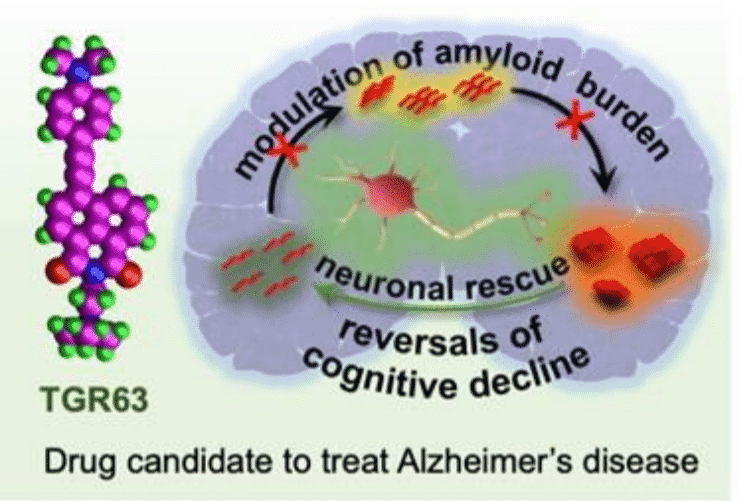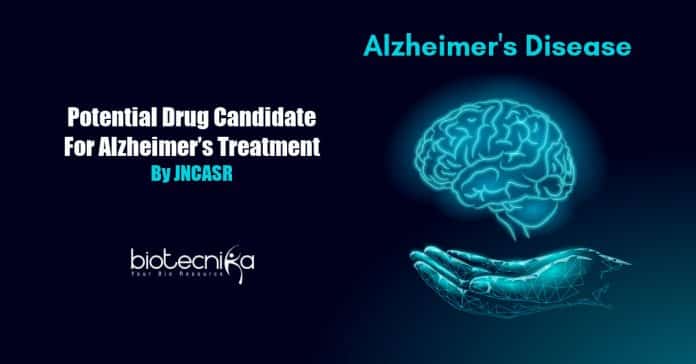Potential drug candidate for Alzheimer’s treatment
A team of scientists from JNCASR has developed a small molecule that interrupts the mechanism where nerve cells become dysfunctional in Alzheimer’s disease. This newly developed molecule could be a promising drug prospect to prevent or cure the foremost cause of dementia (70-80%) across the globe.

In the brain of a patient with Alzheimer’s disease, aberrant levels of naturally forming protein clump collectively to form plaques that accumulate between neurons and disturb cell mechanisms. This is due to the synthesis and deposition of the amyloid peptide (Aβ) that gets accumulated in the CNS.
The reason which kept scientists from developing efficient therapy is the multifactorial nature of Alzheimer’s disease (AD) associated with multifaceted amyloid toxicity.

A group of scientists led by Prof Thimmaiah Govindaraju from JNCASR developed and manufactured a set of small molecules and uncovered a lead candidate, which can decrease Amyloid Beta’s toxicity.
The comprehensive research developed the molecule referred to as TGR63 – the lead candidate to protect neurons from amyloid toxicity. Incredibly, the molecule was also discovered to minimize the amyloid burden in the hippocampus and cortex or a compact part
set deep into the temporal lobe, therefore inverting cognitive drop. The outcomes of the study have been released in the journal Advanced Therapeutics.Presently available treatments offer only short-lived relief, and there are no licensed medicines that directly act on the Alzheimer’s disease mechanism. Therefore, there is an unmet requirement to establish medicine candidates to halt or treat Alzheimer’s disease.
When TGR63 was treated in mice brain affected with Alzheimer’s disease, the studies revealed a substantial decrease of amyloid deposits, confirming its therapeutic efficiency. Additionally, the mice exhibited a reduction in memory impairment, learning deficiency, and cognitive deterioration, as disclosed by distinctive behavioral experiments. These crucial features have confirmed the capacity of TGR63 as a potential drug candidate for the treatment of Alzheimer’s disease.
Alzheimer’s disease severely influences the patients, families, and caretakers and is a significant social and economic burden worldwide.
Potential drug candidate for Alzheimer’s treatment
Also read:






























